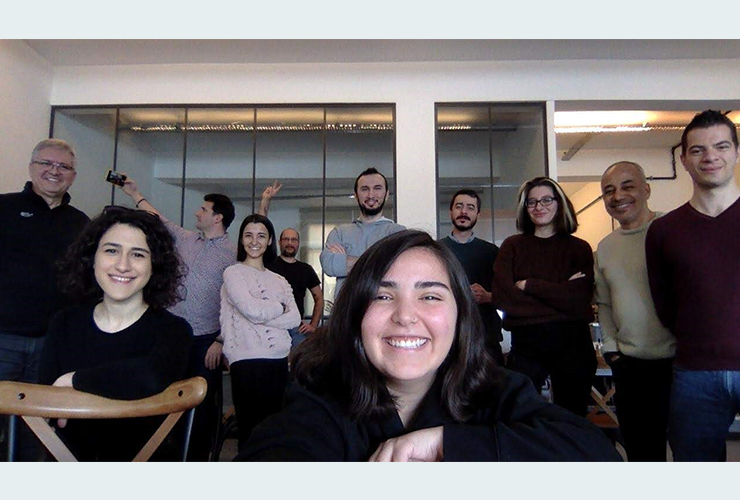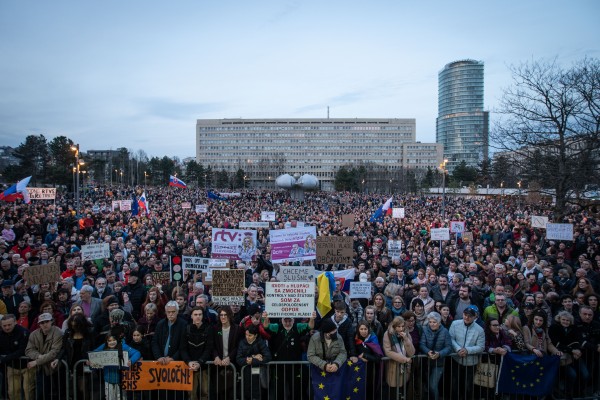Kaya Heyse, Deputy Chief Editor, Medyascope, Turkey
Medyascope’s newsroom has been extensively following the coronavirus crisis since China reported its first case in late December 2019.
The first few days of the outbreak were muddled with uncertainty. The virus didn’t have a name yet – “a mysterious virus” was the name opted for by our editors. Soon it became clear that it was serious and would start dominating the agenda.
January passed with the mounting death toll in China and then the virus hit Iran and Europe.
In early February we started talking to renowned Turkish scientists about the danger of the virus. For us it was clear then, that the virus would hit Turkey rather sooner than later. And we started to prepare for a pandemic.
The turning point probably came late February. We did a live interview with a French doctor based in Wuhan (then the epicentre of the outbreak). Although he spoke a bit in optimistic terms (probably out of fear of the Chinese authorities) we grasped the horrifying implications the outbreak would have on a global scale.
Then we put our emergency plans into motion.
Medyacope, in essence, is a traditional newsroom broadcasting via the new technologies. We knew that by adapting the technology we would be able to continue to broadcast – even if a nation-wide, forced lockdown came in place.
Turkey’s first case was announced on March 11. Our reporters were able to locate the infected person – a jewellery store owner in Istanbul’s Grand Bazaar. Our report on the case was read in staggering numbers. But the story showed us something else: We had to go into self-isolation and shut down the office.
And this, we did.
On March 13 we sent all our reporters home and told them to work from there. In the meantime, a core team of a few editors, some tech guys and our owners remained in the office for another week. We set up a virtual control room in the home of our Head of Broadcasts. Via new software and a video-conferencing app called Streamyard we had our new emergency infrastructure ready.
We tested a few days and then, shut the office. It was March 20.
Since then, all of Medyascope’s staff is working from home. We don’t force our reporters to go out. We continue to pay the salaries and taxes. None of our staff has been fired or put on unpaid leave – as is the case in so many sectors. We were probably the first outlet to take these precautions and continue to broadcast.
So, what do we do now?
As good journalists, we manage the many dimensions of the story:
* The human impact: We report on how the crisis effects ordinary human beings. We tell stories about the lockdowns, the dead, the healed, the infected and many other. We try to understand how the crisis will redefine our understanding of norms, traditions, beliefs, relationships, education, healthcare, arts and culture…
* The economic impact: We tell how the crisis effects the economy – and once again us, the people. We tell stories about the dilemmas of having to stay at home vs having to go to work, speak to people who have lost their jobs or are on unpaid leave, speak to experts to give us insight about what to expect.
* The political impact: We report on how the crisis effects politics. We provide critical coverage on the government’s response to the crisis and explain how the measures taken are affecting ordinary lives. We try to understand, via expert views, how (or if) the crisis will change the global and political landscape.
* The scientific developments: We focus on the battle to contain the virus and find a cure. We talk to our country’s top scientists and we make sure that we counter the flow of misinformation and conspiracy theories. We inform the public regularly on how to protect oneself and give detailed information about the public health aspect of the crisis. We deal with the uncertainty of it all.
These of course, come all in videos, texts or podcasts.
We probably work more than before. We know that this pandemic will change the world and our country. We want to be there as it happens. We want to stay in business and we want to stay safe.


